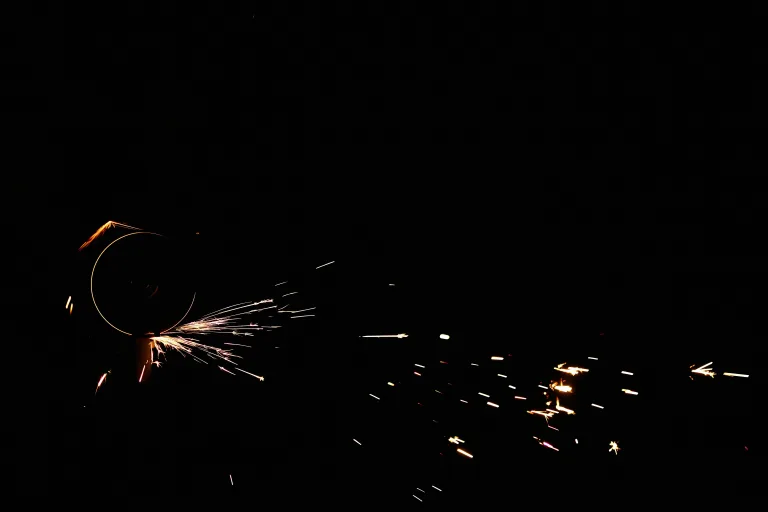What’s the Best Mosquito Control Method in Alaska?
Introduction – Living With Mosquitoes in The Last Frontier
If you’ve ever spent a summer in Alaska, then you already know—the mosquitoes here don’t mess around. They aren’t just a minor nuisance; they’re part of daily life from late spring through early fall. Whether you’re fishing in the Kenai Peninsula, hiking the trails around Fairbanks, or just enjoying an evening barbecue in Anchorage, mosquitoes seem to find you wherever you go. In fact, Alaska is home to roughly 35 mosquito species, and they thrive in the state’s vast wetlands and boreal forests.
But just because mosquitoes are a fact of life in Alaska doesn’t mean you’re stuck living with itchy bites and buzzing swarms. With the right strategies, you can take back your outdoor space and make the most of those precious warm-weather months. So, what’s the best mosquito control method in Alaska? Let’s break it down—from natural repellents and habitat control to state-of-the-art mosquito traps and professional mosquito control services in Alaska.
Why Mosquito Control in Alaska Is Unique
Mosquito control in Alaska is unlike mosquito management in most other states for one big reason: the environment. The short, intense summers combined with widespread standing water—thanks to melting snow, bogs, lakes, and tundra—create ideal breeding conditions for mosquitoes.
In the Lower 48, people often think of mosquito season as lasting from spring through summer. In Alaska, it’s more compressed but more intense. Mosquitoes can hatch in incredible numbers within a matter of days, especially after the snow melts in late May or early June. This seasonal explosion means Alaskans need proactive, targeted methods that work fast and cover a wide area.
Top Mosquito Control Methods for Alaskan Homes
Let’s dive into the most effective mosquito control methods in Alaska—ranging from simple DIY tactics to high-efficiency professional solutions.
1. Remove Standing Water
First and foremost: mosquitoes lay their eggs in water. If there’s any standing water around your home—think birdbaths, flower pot saucers, old tires, kiddie pools, clogged gutters, or even low-lying spots in the yard—it’s an open invitation for mosquitoes to breed.
What to do:
- Empty and clean water-holding containers at least once a week.
- Fix poor drainage spots or install gravel in low areas to improve runoff.
- Use mosquito “dunks” (BTI larvicides) in places you can’t drain—like rain barrels or small ponds.
2. Mosquito-Repellent Landscaping
Believe it or not, your landscaping can help with mosquito control. Certain plants naturally repel mosquitoes thanks to their strong scents and oils.
Great options for Alaska:
- Citronella (best in pots during the summer)
- Lavender
- Catnip
- Lemon balm
- Marigolds
- Basil
Plant these near seating areas, doorways, or patios to add a layer of defense.
3. Install Outdoor Fans
Alaska may not be known for blistering heat, but even a small breeze can help keep mosquitoes away. Mosquitoes are weak fliers, and a simple box fan or ceiling fan on your porch can significantly reduce their presence.
4. Use Mosquito Traps or Zappers
For homeowners who want to reduce the local mosquito population (not just repel them), mosquito traps can be a game-changer.
There are several types:
- Propane-powered CO₂ traps: These mimic human breath to lure mosquitoes and trap or kill them.
- UV-light traps: Attract mosquitoes at night and zap or trap them.
- Heat and moisture-based traps: Replicate body heat and sweat to attract mosquitoes.
Some high-end systems can cover 1–2 acres and run all season long with minimal upkeep.
5. Barrier Sprays
Mosquito barrier sprays are another effective strategy for Alaska homes—especially in wooded or brush-heavy areas. These sprays, applied to vegetation and shaded areas where mosquitoes rest, kill adult mosquitoes on contact and repel others for weeks.
Homeowners can apply store-bought sprays, but professional mosquito control services in Alaska offer longer-lasting, more powerful treatments. Many companies now offer eco-friendly or natural options that are safe for pets and kids.
Natural Mosquito Repellents That Actually Work
If you’re aiming for a more natural, DIY route—whether due to environmental concerns, pets, or kids—there are plenty of options beyond store-bought DEET sprays. While DEET is highly effective, it’s not the only solution.
Top natural repellents:
- Oil of Lemon Eucalyptus (OLE): Backed by the CDC as one of the most effective natural mosquito repellents.
- Lavender oil: Soothes the skin and repels bugs.
- Tea tree oil: Has antiseptic and insect-repelling properties.
- Soybean oil-based repellents: Often found in natural bug sprays.
Just remember: essential oils wear off quicker than chemical options, so you’ll need to reapply often—especially if you’re sweating or getting wet.
Clothing and Personal Protection Tips
When the swarms are out in full force, personal protection becomes just as important as yard control. Here’s what seasoned Alaskans know works best:
- Wear long sleeves and pants, ideally treated with permethrin (a safe and effective fabric insect repellent).
- Opt for light-colored clothing, as mosquitoes are drawn to dark colors.
- Use head nets and bug jackets when hiking or camping—especially in the interior and tundra regions.
- Apply repellent to exposed skin and clothing, and don’t forget behind the ears, at the neckline, and around ankles.
Professional Mosquito Control in Alaska
While DIY solutions help, many homeowners and businesses in Alaska turn to professional mosquito control services for long-term results—especially when living near lakes, rivers, or wetlands. These experts understand local mosquito behavior, hatch cycles, and the best treatment timing for Alaska’s specific climate.
What Professional Services Offer:
- Site assessment to locate mosquito breeding hotspots
- Targeted larvicide treatments
- Barrier spray applications with commercial-grade products
- Seasonal treatment schedules based on regional data
- Optional all-natural or organic treatments
- Mosquito misting systems for ongoing protection
Hiring a mosquito control company in Alaska can be especially beneficial if you own a cabin, vacation property, or live in a heavily wooded or water-adjacent area.
What Doesn’t Work Well in Alaska
Not all mosquito control methods are created equal—especially in Alaska’s rugged, often extreme environment.
Here’s what often doesn’t work:
- Ultrasonic mosquito repellents: Despite their popularity, scientific studies have consistently shown these devices are ineffective.
- Citronella candles alone: While citronella oil is a good repellent, candles don’t offer enough coverage to make a difference unless you’re sitting right next to one—and even then, results are spotty.
- Bug foggers: These provide only temporary relief and may harm beneficial insects and pollinators. They also don’t prevent new mosquitoes from hatching.
Mosquito Control for Alaskan Campers and Outdoor Enthusiasts
If you’re heading out for a weekend of camping, hunting, or fishing, you’ll want to go in fully prepared. Mosquitoes in remote parts of Alaska—especially near marshes and tundra—can be brutal. Here’s your go-to list:
Must-haves:
- DEET or Picaridin repellent
- Permethrin-treated clothing
- Bug net for your tent and/or hammock
- Thermacell devices (small, battery-powered repellent diffusers that create a mosquito-free zone)
- Lightweight bug jacket with mesh face cover
Campers often rave about Thermacells, which can be a lifesaver during mosquito season. They’re lightweight, packable, and provide quiet, scent-free protection without spraying chemicals on your skin.
When Is Mosquito Season in Alaska?
The short answer: it starts in late May and ends by early September. But the intensity of mosquito season can vary depending on where you are:
- Interior Alaska (Fairbanks, Denali): Mosquito season peaks in June and early July. These areas are infamous for their thick swarms.
- Southcentral Alaska (Anchorage, Kenai Peninsula): Season starts slightly later and may be shorter. Cooler temps help reduce mosquito numbers.
- Western Alaska and the tundra: The mosquitoes here can be relentless due to marshy terrain.
In most areas, the worst is over by late July—but other biting insects like no-see-ums and blackflies may take their place.
Best Practices to Combine for Long-Term Relief
There’s no single “silver bullet” when it comes to mosquito control in Alaska. Instead, the most successful approach is layered defense—combining multiple methods to both repel and eliminate mosquitoes.
Here’s a smart, multi-tiered plan:
- Eliminate standing water on your property.
- Use natural repelling plants in your landscaping.
- Install a fan or trap in your sitting areas.
- Apply barrier treatments to trees and shaded zones.
- Wear treated clothing and apply personal repellent daily.
- Hire a professional for consistent, season-long protection if mosquitoes are a major problem.
Take Back Summer in Alaska
Alaska’s beauty comes with its fair share of wild quirks—and mosquitoes are one of them. But just because mosquito season is intense doesn’t mean you have to surrender your summer to the bugs. Whether you’re relaxing in your backyard in Wasilla, hiking in Chugach State Park, or camping along the Yukon River, you can enjoy the great outdoors without constantly swatting or scratching.
With a layered approach to mosquito control, Alaska residents can significantly reduce mosquito populations and protect their families, pets, and guests. From simple DIY efforts like dumping standing water and planting mosquito-repelling herbs to investing in high-efficiency mosquito traps or calling in the professionals, there’s a method that fits every lifestyle and property.
So, what’s the best mosquito control method in Alaska? It’s the one that works best for your environment, your comfort level, and your outdoor goals. Don’t let mosquitoes rule the summer—fight back with knowledge, strategy, and the right tools.
If you’re looking for trusted mosquito control in Alaska, reach out to a local expert who understands the region’s unique challenges and can tailor a solution that keeps the bites at bay all season long.




